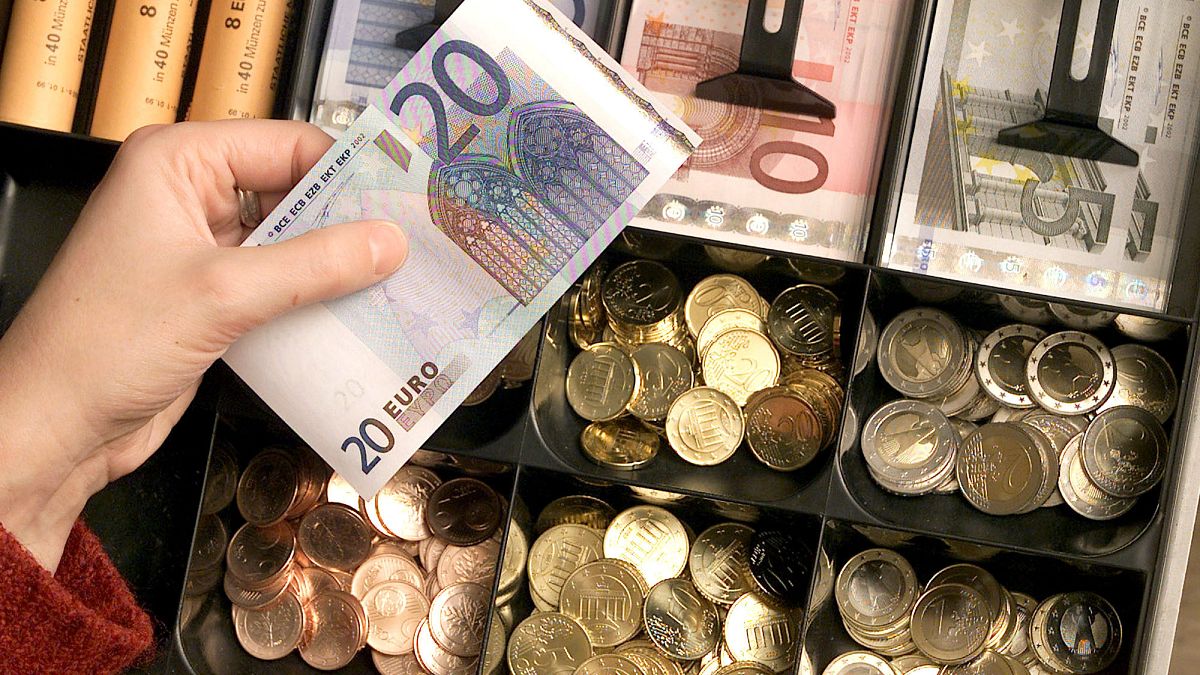EU lawmakers voted in a landslide in favour of new curbs on crypto, football clubs and cash transactions.
EU lawmakers today voted 482 to 47 to set up a long-promised EU anti-money laundering agency, as part of a package that would also see large cash payments banned across Europe.
The move – taken by MEPs at their last voting session before June elections – means new rules apply for football deals and crypto transactions, as the bloc seeks to repair its reputation after a series of financial-sector scandals.
“Dirty money finances terrible crimes,” EU financial services commissioner Mairead McGuinness said, adding that there was an “absolute imperative to improve significantly on the current situation”.
Those views seemed largely shared across the political divide – including by Damien Carême (France/Greens), one of the MEPs who led negotiations.
Terrorists and fraudsters “exploit the loopholes in European legislation”, Carême told lawmakers. “We have to act decisively to ensure a robust system.”
What do new EU money-laundering rules do?
New rules include a limit on professional traders accepting or paying cash for any transaction over €10,000 – given that big wads of untraceable banknotes can send alarm bells over financial crime.
Some lawmakers claim that’s an attack on financial freedom.
“Keep your hands off our cash and our digital currencies,” Patrick Breyer of the German Pirate Party told lawmakers. “We Pirates say no to this creeping financial disenfranchisement.”
Yet one of the most touchy subjects of the complex package has been geographical: the question of where to house a new EU anti-money laundering agency.
After a first-of-a-kind 12-hour public hearing, German financial centre Frankfurt won out, from a slate of candidates that also comprised Paris, Rome, Madrid, Vienna, Riga, Vilnius, Brussels and Dublin.
Its 400-odd staff will directly supervise dirty-money controls at 40 of the bloc’s biggest financial institutions.
Expanded scope of new anti-money laundering laws
EU money laundering laws already apply to big institutions like banks, who are required to verify who their customers are, and report suspicious transactions to the authorities.
Those rules will also apply to high-risk sectors like traders in artwork, jewellery and luxury yachts. They’ll be extended to cover innovative services like cryptocurrency providers—as lawmakers are concerned bitcoin and other, even more anonymous assets can be used for illicit payments.
At MEPs’ insistence, the measures apply to major football clubs and agents – given the large amounts of sometimes dubious money that circulates between them.
More consistent rules
For the first time ever, the EU’s rules are set out in a regulation that will apply more or less consistently across the bloc.
That means less discretion for each country to tweak rules for the national context – creating discrepancies that make it harder for legitimate businesses to operate across borders, and easier for criminals and terrorists to exploit the system.
A separate money laundering directive, also agreed today, resolves issues over how journalists and activists can trace the financial structures used to hide wealth.
Arrangements were thrown into disarray by a shock 2022 EU court judgment that restricted access to company ownership registers on privacy grounds.
Why does the EU need new anti-money laundering rules?
Officials hope the new rulebook will help improve the EU’s reputation for dirty money, closing the chapter on a series of scandals.
Two EU members – Croatia and Bulgaria – currently sit on a “grey list” of suspect money laundering jurisdictions compiled by international standard-setter the Financial Action Task Force (FATF), and Malta was only recently taken off it.
The region also faced a series of financial-sector scandals involving institutions such as Danske Bank, Latvia’s ABLV, and Malta’s Pilatus bank.
Danske was fined billions of euros by US and Danish regulators in 2022, after admitting that around €200bn was laundered through its Estonian arm between 2007 and 2015.
EU talks were given extra salience by the need to enforce sanctions imposed on Russia for its war in Ukraine – given fears that ultra-wealthy oligarchs can use shady financial structures to evade curbs.
When will new EU money laundering rules take effect?
New anti-money laundering controls have been a long time coming, and it’s still not over.
Valdis Dombrovskis berated uneven enforcement and promised to examine a new EU agency in his hearing to become EU financial services commissioner as far back as October 2019.
After several last-minute wrangles, lawmakers and governments announced a tentative deal on the bulk of the law in January 2024.
Once nodded through by national ministers, much of the new regulation kicks in after three years, but there is some flexibility.
Rules for the football sector will take five years to apply, and the new EU agency could start work later this year – though the law setting it up takes effect formally in July 2025.
